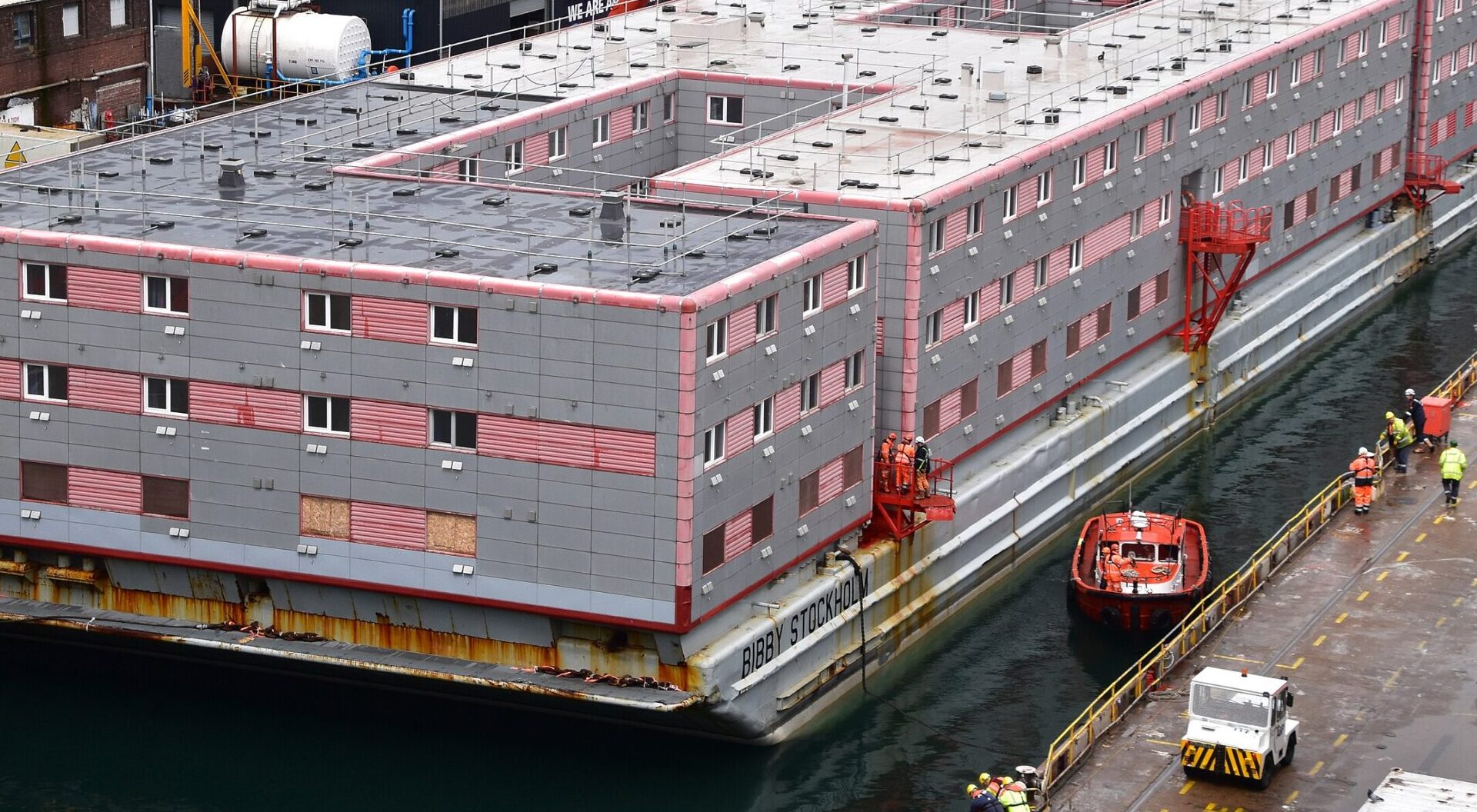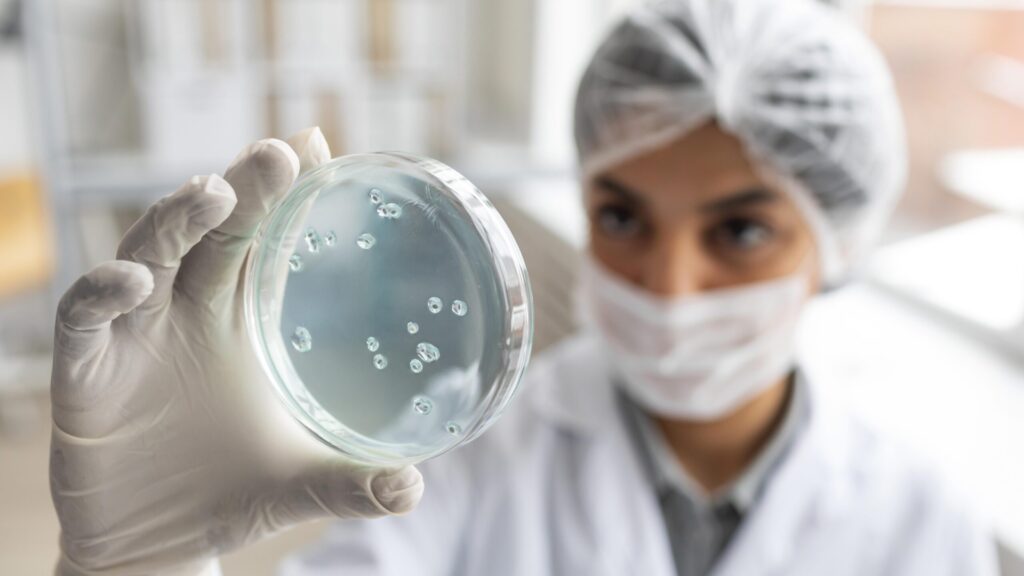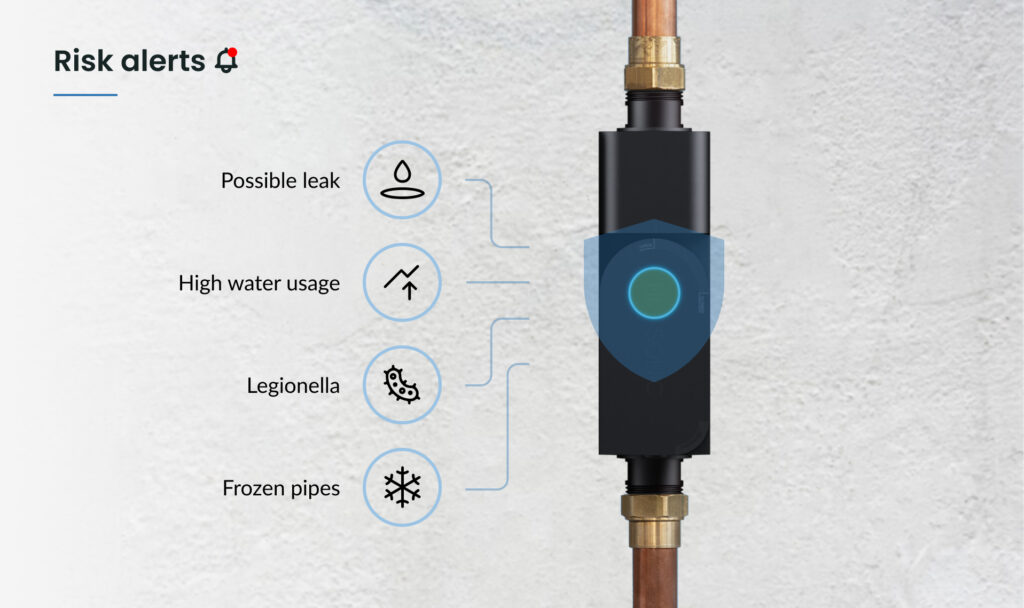

Adam Williams, CEO at Hero Labs
As you will no doubt be following in the news, the housing of asylum seekers on the Bibby Stockholm barge is causing some controversy.
Regardless of anyone’s political views, what should be of great concern to us all are the safety issues that have surfaced – starting with a dire warning by fire and rescue professionals that it’s “a second Grenfell waiting to happen”, through to the latest headlines that the first occupants have been disembarked due to the detection of potentially deadly Legionella bacteria.
Legionnaires’ disease is a serious form of pneumonia that you can catch from inhaling infected droplets of water, such as in the shower. It can form whenever water sits between 20°C and 45°C for an extended period and is fatal in around 10% of cases. Amongst those over the age of fifty or those receiving medical care, fatality rates are far higher. For perspective, COVID peaked at about 1% fatality rate, falling to around 0.2% as we got better at managing it.
Legionella is hugely under-reported in the UK, as it is so often diagnosed as simply pneumonia. Research by the British Safety Council indicates there are as many as 4,000 to 6,000 cases per year.

What is most frustrating about this latest controversy is that the whole situation was entirely preventable. Just as with Grenfell, new technology already exists to prevent such disasters by anticipating the likelihood of an incident before it can happen, rather than dealing with the aftermath.
A low-cost, internet-connected sensor could have detected the fault in the electrical appliance that caused the Grenfell fire; just as the sensors in products such as Hero Labs’ Sonic smart water valve can detect the water conditions in which Legionella can grow and alert the occupier to any risks via a mobile phone before they become a serious threat. And we are not just talking about large buildings like hospitals, hotels, blocks of flats or even over-sized barges – every home can have affordable protection.
As the author William Gibson once said, “the future is already here, it’s just not evenly distributed”.

At this point I should declare my self-interest in this topic. As a smart technology company, Hero Labs has a commercial interest in the uptake of products to address such issues. However, it also means we have a certain perspective on how emerging technologies can make a genuine impact.
At Hero Labs we believe it is an inalienable human right to live and work in buildings with a clean, safe water supply straight to the tap, that will not leak and thereby cause further problems with health and property damage, and which is sustainable in a world where water scarcity is already a huge and growing global crisis.
In a similar way, the Grenfell tragedy spurred me to become a Board Trustee at Electrical Safety First. Having to evacuate refugees from their accommodation, after they may already have fled war, famine and oppression to reach the UK, because of a highly preventable water borne disease, is just plain wrong, regardless of your views on the subject of migrants. It is all the more unacceptable when the technology is already here, proven and affordable – at little or no cost to the taxpayer. After all, how much is a life worth?
So, with a pre-warning of an impending product pitch, allow me to say a little about what we do. We make a device called Sonic that detects even the tiniest water leaks anywhere in the water supply of a home or business, and can intelligently shut off the water supply to protect the whole property. Moreover, it can alert you to risks such as Legionella and freezing pipes, and provide powerful water usage data which can drastically reduce wasted water consumption. All this information comes straight into the mobile app, empowering users to switch their water supply on or off from anywhere in the world; or arrange for a tradesperson to fix a problem. Whether you are responsible for large scale buildings, or a homeowner who wants to protect their most precious asset – the family home – we would be delighted to talk with you.

A few figures to add some flavour: did you know that water leaks from pipes inside homes are by far the number one cause of insurance claims, greater than fire, smoke, burglary and vandalism combined? And yet only 7% of homes have any form of water leak detection, compared to 94% with smoke detectors.
Furthermore, the United Nations predicts that by 2025, two thirds of the global population will live in regions suffering water scarcity. It is staggering to think that of all the water on the Earth, 97% is saltwater; of the remaining 3%, two thirds is locked up as ice in the polar caps and glaciers; and of the remaining 1% available for us to drink, conservative estimates show we waste over 70%.
We need to act now to reduce waste of our most precious water resource – clean, safe drinking water. I do not mean to be alarmist when I predict that within the lifetime of anyone reading this, armed conflicts will increase as a direct result of clean water shortages. UNICEF predicts water scarcity will create an extra 700 million refugees globally by 2030, compared to today’s 90 million refugees caused by all wars, natural disasters and famines.
In case you’re thinking the UK will be fine – we’re a famously rainy collection of islands, after all – the UK Environment Agency expects almost half of England to face severe water stress by as soon as 2030.
To bring this full-circle to where I started – the unfortunate incident of Legionella onboard the Bibby Stockholm – perhaps if we took a more concerted approach to embracing preventative technologies to address global as well as local problems, we would spend less time arguing over migrants and more time solving problems before it is too late.
Perhaps I am hopelessly naïve, but I hope you will join us in trying to do something about it. Whatever your politics, I hope that we can all agree that #SafeWaterMatters. Now. Not tomorrow, or the next day. It is, quite literally, a matter of life and death.
Featured photo by Ashley Smith – Own work, CC BY-SA 4.0